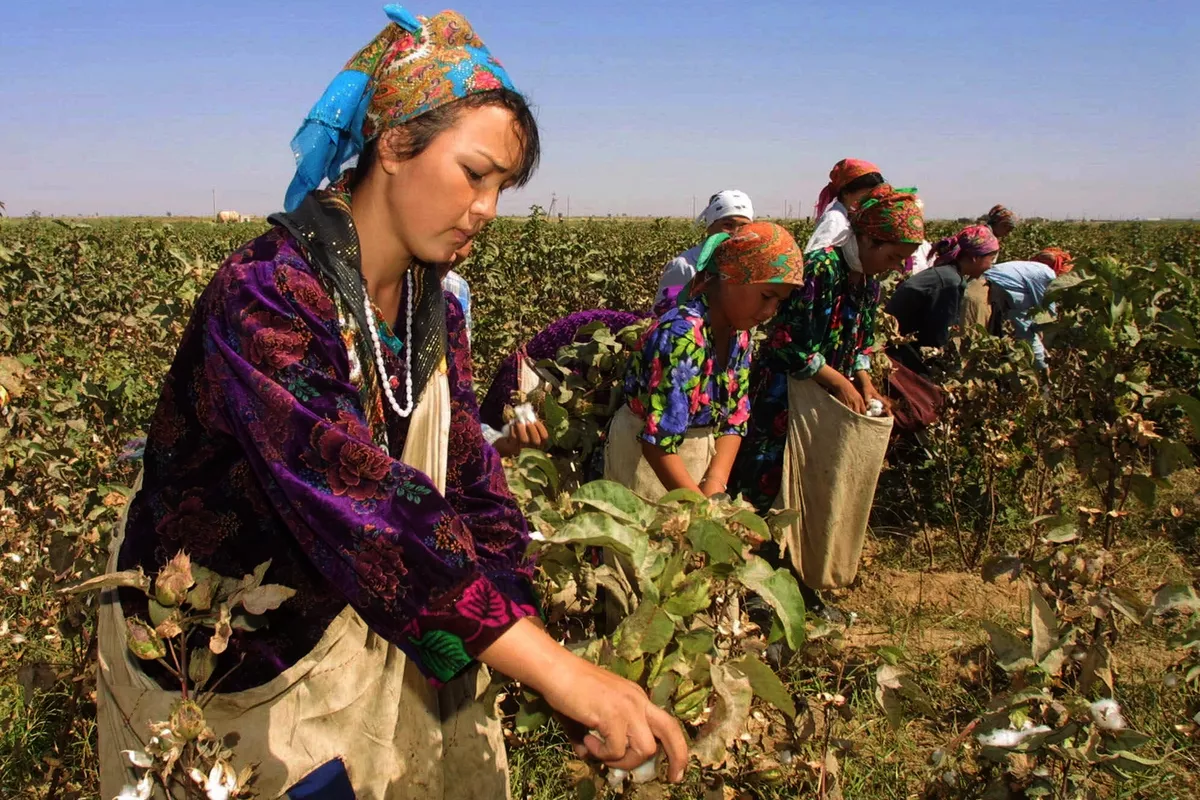
photo: The New York Times
Despite the recent law “On the Status of Teachers,” designed to elevate the profession and improve working conditions, schools across Tajikistan are starting the academic year with teachers and even pupils picking cotton instead of attending classes.
Framed as “voluntary help to farmers,” refusing to participate is often not an option, while child labor laws are being blatantly ignored, The Caspian Post reports via Tajik media.
At the Abdurahim Jumayev Collective Farm in Sughd province, pupils as young as grade 5 are working alongside teachers and medical staff, tasked with picking up to 10 kilograms of cotton per pupil daily. One teacher explained, “Around 150 pupils go out to the fields every day… If there are 30 pupils in a class, the total amount that needs to be picked is 300 kilograms.”
In urban areas, pupils are spared, but teachers continue to be sent during lessons, often without lunch or transportation. As one teacher from Khujand admitted, “Do they pay for the cotton picked? They do not pay, moreover, they criticize us for picking too little. I come home completely exhausted, with no strength or time to prepare lessons.”
Reports reveal that cotton picking quotas are sometimes linked to official documents. In Konibodom district, a resident claimed that certificates were only issued after 500 kilograms of cotton were picked-a requirement allegedly based on “recommendations of the president.”
Authorities maintain participation is voluntary, with Dilorom Tursunzoda, deputy chairperson of Bobojon-Ghafourov district, stating, “Agree, it’s better to work than sit on the phone… The faster we help harvest the cotton, the sooner the work will end.” However, human rights activists argue otherwise.
Dilrabo Samadova emphasized, “But this is not voluntary labor, it’s forced labor. And by law, minors cannot perform such hard physical work… When the state not only turns a blind eye but becomes the organizer of forced labor itself, this is no longer inaction, but a direct violation of human rights.”
Despite national laws and international conventions prohibiting child labor, the practice continues systematically, drawing concern from activists who warn that economic justifications and claims of “voluntariness” cannot excuse the exploitation of children and teachers.
This annual cycle highlights deep structural issues in Tajikistan’s cotton industry, where forced labor remains normalized despite legal protections.
Share on social media